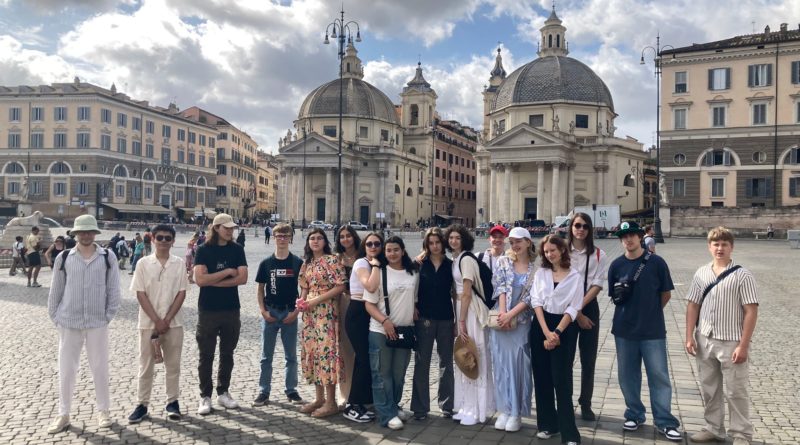Rome Trip: Piazza del Popolo
During our visit to Rome students became tour guides. Each student had to introduce a certain monument to others, focusing on these three areas:
– history of the monument
– how is that monument relevant for us today (Did it influence current culture, language, architecture?)
– a fun fact or an interesting story
In this blog post we share ADELA’s take on Piazza del Popolo:
Piazza del Popolo is one of the most visited squares in Rome. It got its name from one of the square churches, Santa Maria del Popolo. The translation for piazza del Popolo means “ The people’s square.” This square was always very important because it was a starting point for the Northbound route which connected Rome with the northern coastline. During Roman times this square did not have these monuments but for centuries it served as a public fountain, which served as a horse trough or a cistern for washerwomen. The square used to be much smaller but over the course of history it has been expanded many times.
One of the oldest parts is the gate. It is called Porta del Popolo althought it has many different names. It was built in the 16th century by the order of Pope Pius the 4th.
The church next to the gate is called Santa Maria del Popolo. It is the oldest from the 3 churches on the square and was built during the 11th century.
In the middle of the Square there is an Obelisk. It is an Egyptian obelisk that belonged to Rameses II. It was taken from Heliopolis and brought to Rome in the year 10 BC.
The fountain surrounding Fontana del Obelisco was constructed in the 19th century.
Behind the Obelisk you can see 2 twin churches Santa Maria dei Miracoli and Santa Maria in Montesanto. They were both built during the 17th century.
It had architectural influence because it serves as a model for urban spaces and public spaces worldwide. For example the twin churches show principles of balance that continue to inspire contemporary architects and city planners.
Sources:
https://www.youtube.com/watch?v=6SluqC0dtR8
https://www.britannica.com/place/Rome/Piazza-del-Popolo




